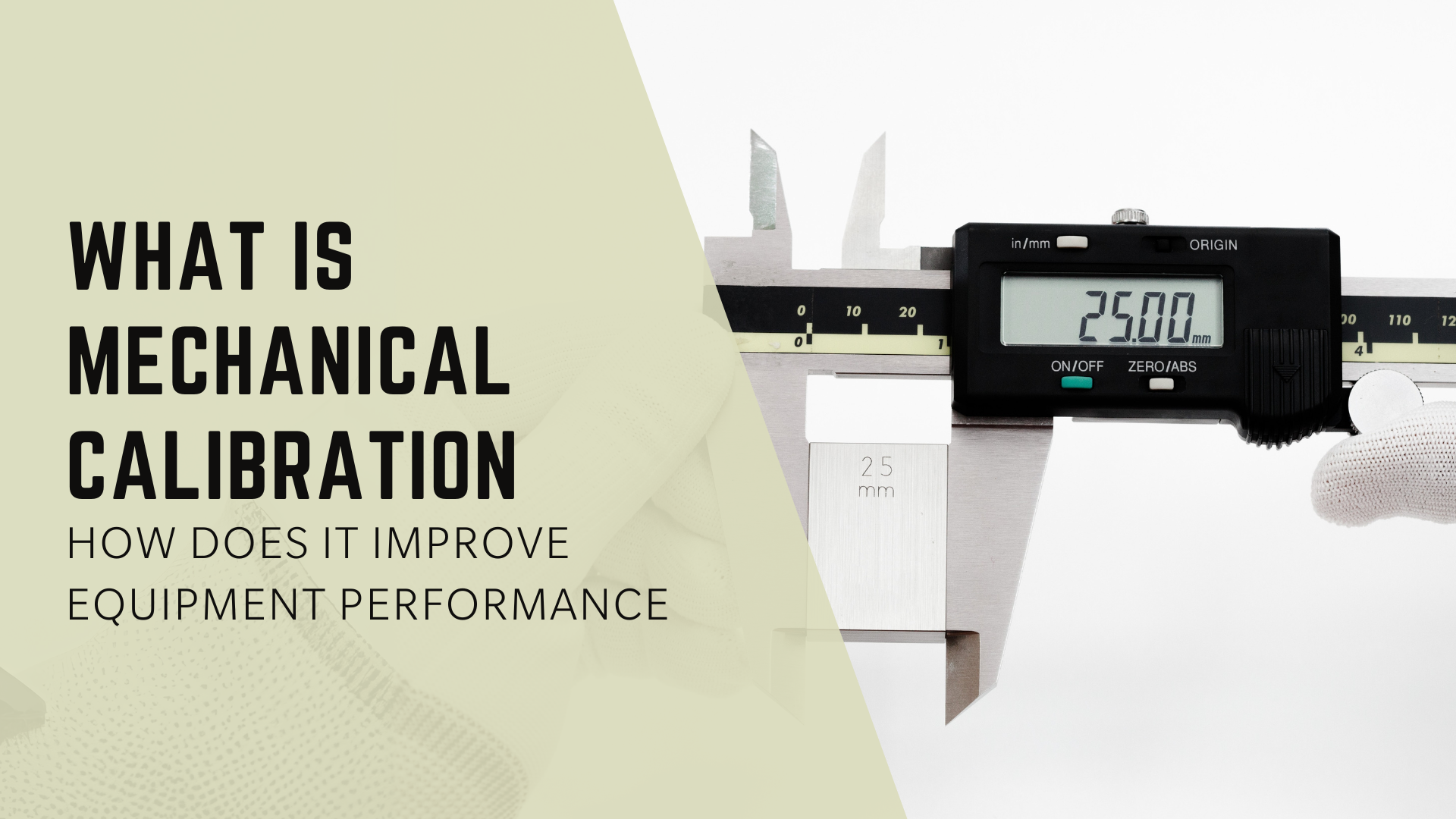Mechanical Calibration and Its Role in Improving Equipment Performance
In today's precision-driven industries, the performance and reliability of mechanical equipment are crucial. Mechanical calibration is vital to ensure that instruments and machinery operate at peak efficiency while meeting stringent quality and safety standards. This blog explores the importance of mechanical calibration, the benefits it offers, and the different types of calibration services available to industries.
What is Mechanical Calibration?
Mechanical calibration refers to the act of checking or comparing mechanical instruments and devices for their level of accuracy to predetermined standards by which their operation will be assessed. Most such standards conform to the ISO or manufactured specifications/standards for accuracy. By doing mechanical calibration, the industries assure proper outcomes in their equipment with consistency and reliability in their quality control, efficiency, and adherence to industry standards.
Why Is Mechanical Calibration Important?
- Accuracy and Precision: Mechanical calibration ensures tools such as pressure gauges, torque wrenches, and calipers display accurate readings. This precision is indispensable for product quality, safety, and compliance with industry standards.
- Quality Control: Companies in manufacturing and healthcare depend extensively on quality control. Inadequately calibrated equipment can lead to errors, ultimately affecting the quality of products and results of research studies. Regular calibration services are crucial for meeting strict quality expectations.
- Cost-Effectiveness: Timely mechanical calibration services can pick up on slight deviations in good time before major equipment failures, or even replacements become a costly affair. This approach, in advance, helps the industries save money on repair and downtime.
- Adherence to Standards: Many industries are bound by national or international standards such as ISO. Regular calibration services, including pressure gauge calibration and slip gauge calibration, help companies keep up with adherence, certifications, and accreditations.
- Efficiency in Operation: The machines and equipment are more efficient. For instance, a calibrated torque wrench correctly applies force, and this improves the quality of assembly with fewer mechanical failures.
- Safety: Equipment misaligned can cause dangerous conditions. Calibration of safety devices such as pressure relief valves and temperature sensors minimizes risks, thus ensuring safety in the workplace.
- Enhanced Performance: A piece of equipment, when working within its calibration specifications, functions at the desired level of performance. A calibrated engine test bench yields tightly monitored parameters that result in higher performance and productivity.
Types of Mechanical Calibration
Mechanical calibration involves specialized services tailored to various types of equipment. Below are some key types:
- Dimensional Calibration: Tools used to measure dimensions, such as calipers, micrometers, and slip gauges. Dimensional calibration is crucial in manufacturing, aerospace, and automotive industries.
- Force Calibration: Ensures accuracy in force measurement tools like load cells and dynamometers. This is essential for material testing and automotive safety applications.
- Pressure Calibration: Pressure calibration of pressure gauges, transducers, and sensors, where the pressure measurement should remain accurate. Calibration of pressure gauges is significant in such places as oil, gas, HVAC, and automobile industries.
- Temperature calibration: Conformance of accurate readings for thermometers, temperature sensors, and thermostats. Industries are concerned with food processing and pharmaceuticals.
- Torque calibration: Ensures that torque wrenches and similar devices apply the correct force. This avoids over-tightening or under-tightening, which may compromise the quality and safety of assembly.
The Role of Calibration Services in Industrial Success
Reliability in mechanical calibration is the backbone of industries that place emphasis on accuracy, safety, and efficiency. These services, including pressure gauge calibration and slip gauges calibration, ensure that equipment performs optimally, reduces downtime, and increases productivity.
Regular calibration is incorporated into the maintenance schedules of industries to improve operational performance and protect their reputation in the market. Whether it is dimensional calibration for precision tools or torque calibration for assembly lines, investment in calibration services is a strategic step toward excellence.
In conclusion, mechanical calibration is not merely about keeping the accuracy level up; it's all about efficiency, compliance, and safety. The role of calibration services in modern manufacturing, research, and development becomes even more crucial as industries continue their quest for progress.
